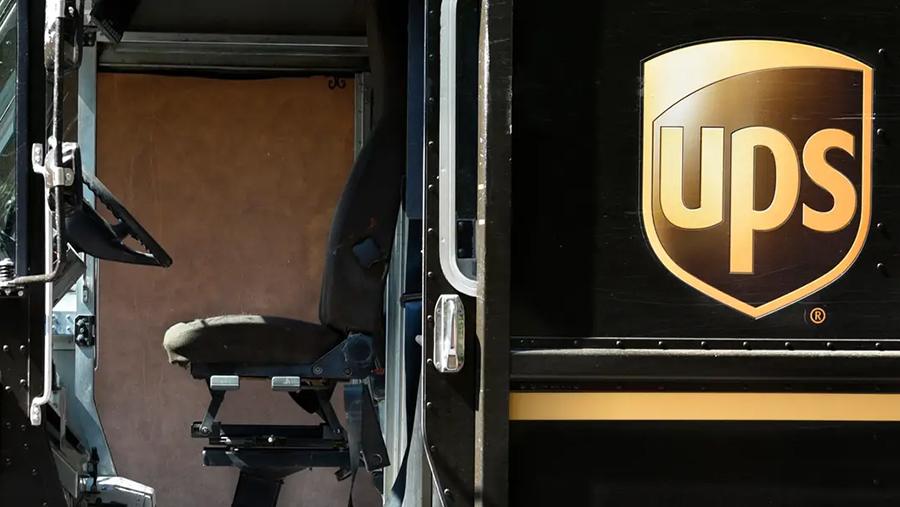A study* from the Anderson Economic Group (AEG) estimated that a 10-day strike by 340,000 unionized workers at UPS could cost the U.S. economy $7.1 billion, making it the costliest work stoppage in U.S. history.
The estimate from Michigan-based AEG, which studies the cost of labor disruptions, includes a hit to businesses and consumers totaling $4.6 billion, causing “significant and lasting harm for small businesses, household workers, sole practitioners, and online retailers across the country.”
AEG noted that only a fraction of impacted deliveries could be filled by FedEx, USPS, other carriers, or direct delivery.
Other costs include estimated direct losses at UPS of $816 million and $1.1 billion in lost wages by 340,000 members of the Teamsters union at the company. The remaining costs would be borne by UPS suppliers and from lost tax revenue.
The union has said it will go on strike on August 1 without an agreement on a new contract.
UPS handles 21.5 million packages a day, the most in the U.S. by far, and transports about 6 percent of the U.S. GDP daily.
According to the Pitney Bowes Parcel Shipping Index, UPS made up 37 percent of parcel market share in the U.S. in 2022, followed by FedEx, 33 percent; USPS, 16 percent; and Amazon Logistics, 12 percent.
UPS pilots belong to a different union and would stop flying in solidarity with the striking workers.
Package delays, held shipments, a spot-market surge, and demand spikes amid shrunken capacity are all forecasted effects should a walkout occur.
Any strike would be vastly more disruptive than UPS’ last strike that led to a 15-day stoppage in 1997, with online now accounting for between 14 percent and 15 percent of retail sales.
The last time UPS workers went on strike, the industry delivered 16 million packages per day, and UPS accounted for about 70 percent of the volume. Now more competitors, including a much larger FedEx and a U.S. Postal Service, have ramped up package capacity to make up for declining letter demand. Still, absorbing UPS’s business for FedEx and UPSP, as well as regional carriers and delivery startups, could be challenging.
Though Amazon delivers most of its packages, it’s also UPS’s largest customer, accounting for about $11 billion of the courier’s $100 billion in sales in 2022.
Teamsters’ leadership obtained strike authorization in a membership vote in June and are free to call a strike as early as August.
The contract talks broke down on July 5, but UPS recently indicated it would return to the bargaining table on July 25 with a better offer for the roughly 340,000 Teamsters-represented U.S. workers before their contract expired on July 31.
UPS wrote, “We are pleased to be back at the negotiating table next week to resolve the few remaining open issues. We are prepared to increase our industry-leading pay and benefits, but need to work quickly to finalize a fair deal that provides certainty for our customers, our employees and businesses across the country.”
The sticking point appears to be wages, particularly for part-timers. Wages for part-time workers, who make up roughly half of UPS’s unionized workforce in the U.S., are paid a minimum wage of $16.20 as mandated for federal contractors. The Teamsters rejected UPS’ offer for part-time wage increases, which Teamsters President Sean O’Brien called “crumbs.”
O’Brien said that part-time wages need to start at more than $20 an hour. About 100,000 workers employed on a part-time basis make less than that, he said.
The potential strike looms as organized labor has returned amid taxing work conditions across logistic networks during the pandemic. O’Brien won the Teamsters election in 2021 by promising to negotiate tougher terms with UPS.
UPS said it would train non-union employees to help deliver packages during a strike.
Many suspect an agreement will be reached before the deadline as UPS is the largest employer of the International Brotherhood of Teamsters at a time when unions are aggressively growing and due to UPS’ strong partnership with the union. O’Brien also asked President Biden not to intervene in the talks, indicating the two sides were looking to work out their differences.
“We believe an August 1 strike at UPS remains possible but not yet probable,” Susquehanna analyst Bascome Majors wrote. “Official news that Teamsters-UPS negotiations restart next week after a 2.5-week break clears a path to ‘get to yes’ before the deadline.”
*To read the study, go here.
















